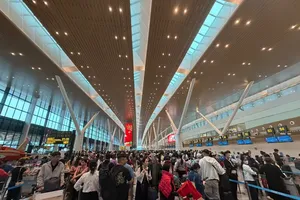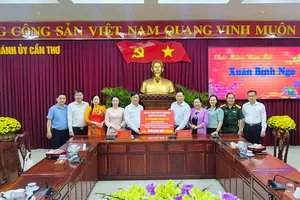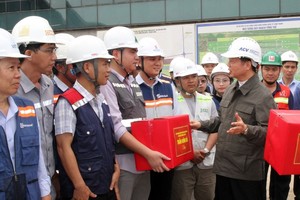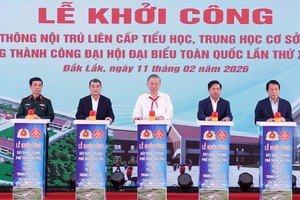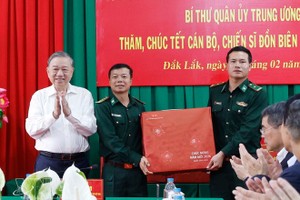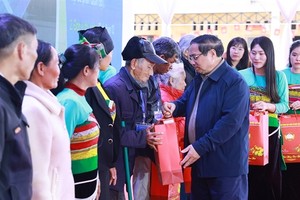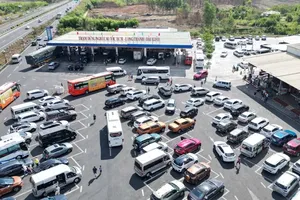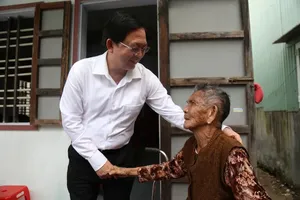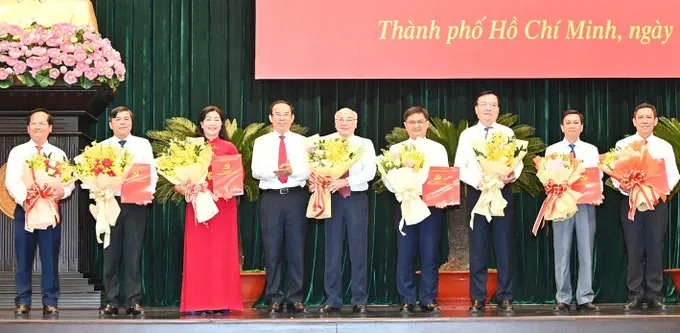
Following streamlining efforts, HCMC’s political system has reduced the number of Party organizations, civil affairs committees, delegations of specialized agencies, administrative bodies, and public service units by 53; units within the City Party Committee’s advisory bodies, the Vietnam Fatherland Front Committee-HCMC branch, and socio-political organizations by 41; and district-level units by 66.
Under the HCMC People’s Committee , the number of specialized agencies has decreased from 21 to 15, administrative agencies from 8 to 3, and public service units from 35 to 32.
HCMC Party Committee Secretary Nguyen Van Nen stated that decisions regarding Party organization changes mark a historic moment in the city’s political reform. He affirmed the city’s commitment to serious, timely, and synchronized implementation with strong political will. The city has completed its review of Resolution 18-NQ/TW while implementing its own restructuring plan, adhering to central directives, local needs, and established timelines.
Hanoi, meanwhile, is streamlining internal organizational structures within its departments and equivalents, targeting a minimum 15-to-20-percent reduction in focal points, excluding those slated for consolidation or merger due to functional overlap. Chairman Tran Sy Thanh of the Hanoi People’s Committee acknowledged the potential impact on the morale of cadres, civil servants, public employees, and workers, but characterized it as “a normal process of development”.
In his speech at the national conference summarizing the work of 2024 and outlining tasks for 2025 for the Ministry of Home Affairs, Permanent Deputy Prime Minister Nguyen Hoa Binh emphasized the need for both speed and scientific rigor in the restructuring process.
Echoing this sentiment, Luu Duc Quang from the University of Economics and Law (Vietnam National University - Ho Chi Minh City) argued that while decisiveness is essential for any “revolution”, careful consideration is equally vital. He stressed that streamlining is not an end in itself, but a means to achieving greater effectiveness, efficiency, and impact in public administration.
Dr. Nguyen Thi Thien Tri from HCMC University of Law voiced that streamlining is inevitable and presents an opportunity for development, freeing up time, resources, and effort previously dedicated to managing an unwieldy apparatus, allowing for increased investment in strategic decision-making. She advocated for a phased approach with sustained commitment, cautioning against allowing the streamlining process to overshadow other crucial state management policies.
A key lesson learned from restructuring Party organizations in various localities is the critical importance of high political determination, substantial effort, and decisive leadership from Party committees and organizations, particularly their leaders.
General Secretary To Lam has stated that the “revolution” of streamlining the organizational apparatus requires a high degree of consensus in understanding and action across the Party and the entire political system. He acknowledged the challenging and complex nature of the task, requiring courage and sacrifice from every cadre and party member.
To ensure the accurate implementation of the political system restructuring plan in accordance with central directives with a target completion date in the first quarter of 2025, provincial and city Party committees, as well as grassroots organizations, have focused on implementing a range of comprehensive solutions.
Minister of Home Affairs Pham Thi Thanh Tra explained that streamlining aims to reduce staff and restructure cadres for improved quality and competency. It is not just about cuts, but eliminating unnecessary positions and ineffective work, focusing resources on key areas and suitable personnel. This requires fair and transparent evaluation. The Ministry has issued a directive to help manage personnel placement during reorganization, allowing agency heads to be chosen from internal or external candidates, and deputy head numbers can temporarily exceed regulations, decreasing within five years.
Dr Nguyen Si Dung, former Deputy Head of the Office of the National Assembly, offered historical perspective. Since 1986, “Doi Moi” reforms have aimed to streamline the apparatus, reduce focal points and payroll, and restructure agencies for efficiency.
While progress has been made, reforms have not been thorough, leaving a cumbersome apparatus with unclear functions, leading to waste and reduced performance. Since 2017 and the introduction of Resolution 18, streamlining has focused on merging units and reducing public service units, but there remains a lack of synchronization and a resistance to change.
To ensure the success and sustainability of the current restructuring, it is essential to draw valuable lessons from history. Specifically, it is crucial to avoid “formalistic reform”. Previous ones often only reduced focal points without fundamentally addressing the problem of overlapping functions and inefficient operating mechanisms. Restructuring functions and improving operational quality must be emphasized.
Transparency and consensus are also key. Restructuring must be based on transparency and achieve consensus within the political system and society. Furthermore, prioritizing people and quality is essential. The apparatus is only truly effective with a high-quality workforce. Experience shows that cutting payroll without improving personnel quality leads to stagnation. Therefore, reform must be linked to training, development, and screening of cadres, and continuous monitoring and evaluation are necessary.
Ministry of Home Affairs is leading the way in administrative reform
The Ministry of Home Affairs is one of the 10 ministries implementing mergers. Minister Pham Thi Thanh Tra stated that, as a consulting agency and a standing agency of the Government on streamlining the apparatus, and as a ministry carrying out the merger, the ministry recognized from the outset the need to be exemplary and pioneering.
The first priority is to ensure effective political and ideological work so that in the post-merger period, the ministry’s cadres and civil servants are reassured in their work, comply with directives, and promote the core cultural values of the two ministries pre-merger.
Moreover, the Ministry of Home Affairs proactively developed draft criteria for evaluating, classifying, and screening cadres, civil servants, and public employees based on clear, distinct, easy-to-understand, and easy-to-implement principles with a scoring system, providing objective, fair, democratic, public, and equitable methods and processes for implementation.




